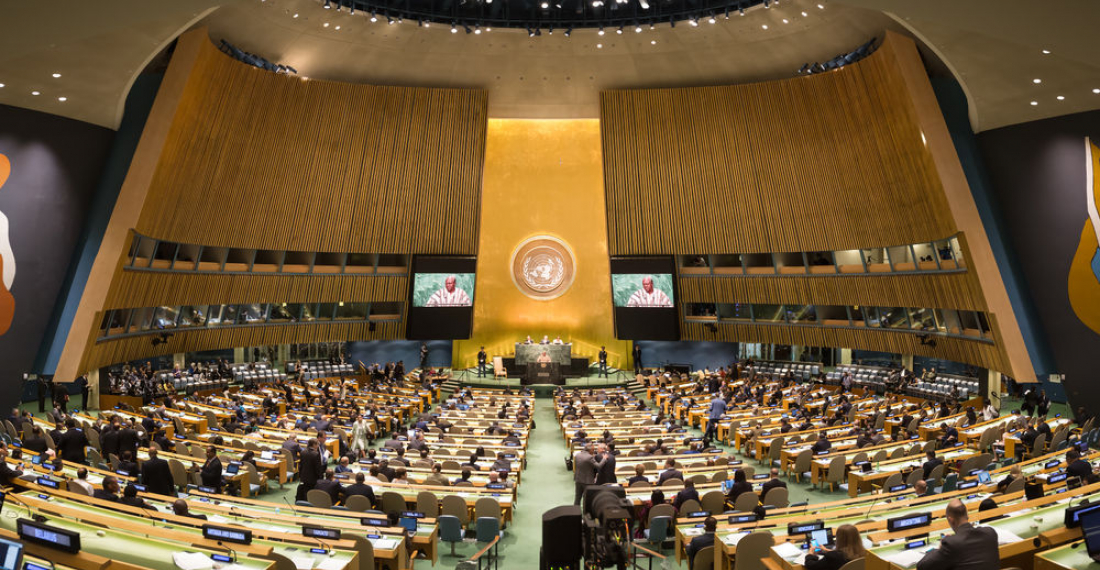In the vote on the United Nations resolution deploring Russia's invasion of Ukraine and urging the immediate withdrawal of Russian forces, the African vote appeared to be fragmented.
After more than two days of debate following the UN emergency session, Eritrea was the only African country among the five countries that voted against the resolution condemning the Ukrainian invasion. Asmara justified its position by stating that unilateral sanctions would be "illegal and counterproductive", recalling that Eritrea had been subject to economic sanctions by the Western bloc whose unproductive effects had only "hurt innocent people and undermine the road to peace".
However, Eritrea was not the only African country that stopped short of condemning the Russian invasion. Although a big majority of African countries did - 28 of the 54 African countries voted in favour of the resolution - 17 countries chose to abstain.
Among the abstainers are Mali and the Republic of Central Africa, both of which have Russian mercenaries from the Wagner Group helping their respective governments fight the growing terrorism in the region.
Eight countries did not vote at alland were recorded as being absent. Among them, two have recently suffered coups, namely Burkina Faso and Guinea, and one has been in the grip of a civil war for 14 months, Ethiopia.
Uganda justified its abstention by a desire not to get involved in “Cold War power games”, South Africa explained its abstention by stating the Western bloc as having double standards. According to South Africa’s head of diplomacy, if a country condemns the Russian invasion, that country should also condemn Israel's “aggression in Palestine, or aggression in Yemen, Syria, Libya, and Somalia”.
If united the 54 African countries representing 25% of the UN General Assembly seats would be a powerful voice against the Russian invasion, but many African countries are publicly ambiguous about the matter because of the growing strategic military ties between Russia and the African continent.
The Kremlin has been forming military alliances with African countries suffering from jihadist threats or political instability over the past few years, including Libya, Mali, Sudan, the Central African Republic, and Mozambique.
Part of Africa seems to be undergoing a geopolitical shift, openly disregarding the recommendations of the United States, the European Union, and the United Kingdom, which are all imposing punitive economic sanctions in the wake of the Russian attack in Ukraine.
This approach however needs to be kept in perspective given the speed with which some African countries have denounced the Kremlin's attack. The chair of the African Union and current President of Senegal, Macky Sall, expressed his "extreme concern" about the situation last week while calling on Russia to “imperatively respect international law, the territorial integrity and national sovereignty of Ukraine.”
This apparent division is consistent with the analysis of Harry Broadman - former economic adviser for the Africa region at the World Bank - who believes that Russia does not want to extend its economic and military ties to the entire continent. Indeed, Moscow remit seems to focus on a few countries with common characteristics: politically unstable, whose economies are mainly based on their natural resources and raw materials, and whose leaders are drawn from the military elite.
Once again Africa appears incapable to offer a united front on a major international issue.
Sources: This analysis was prepared by the research team of commonspace.eu
Picture: UN General Assembly vote on the condemnation of Ukraine invasion; Twitter: @PolicyHighway







